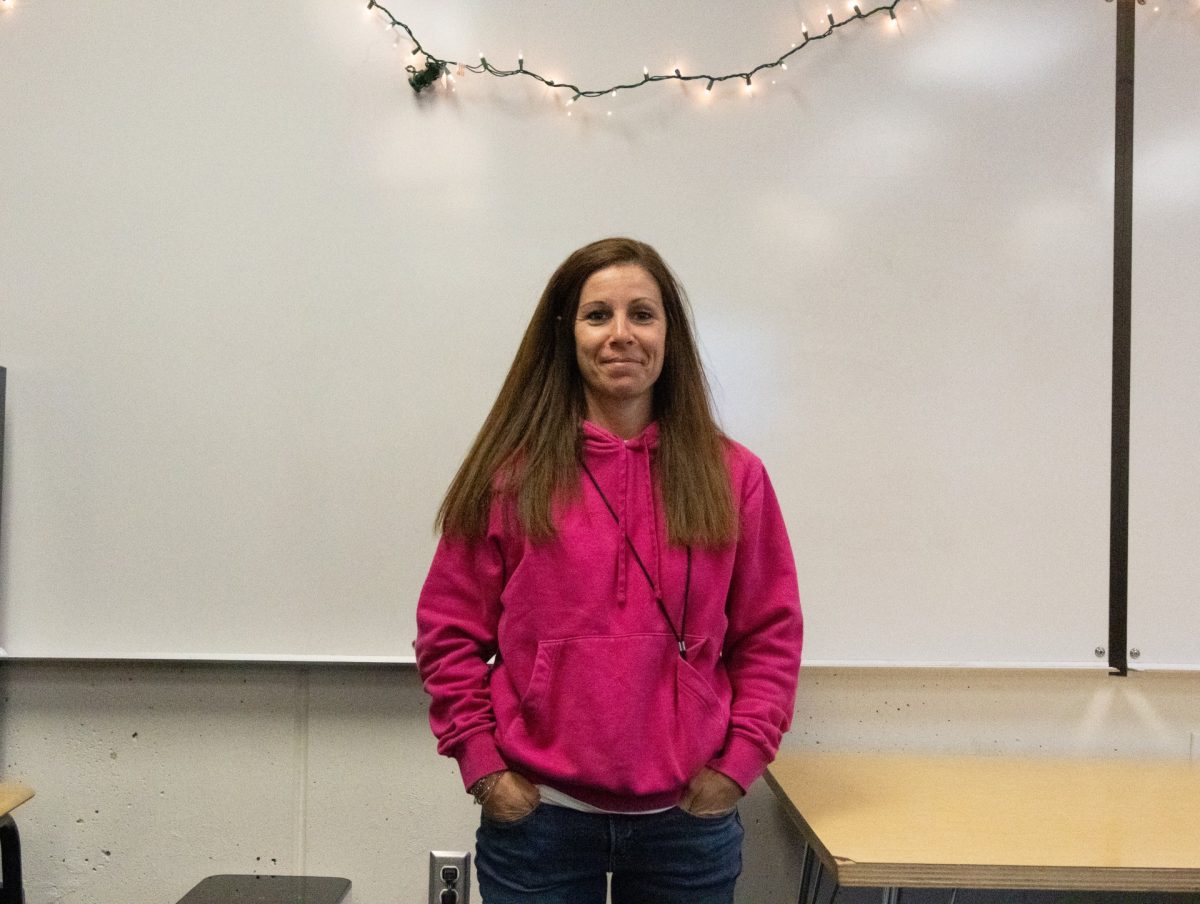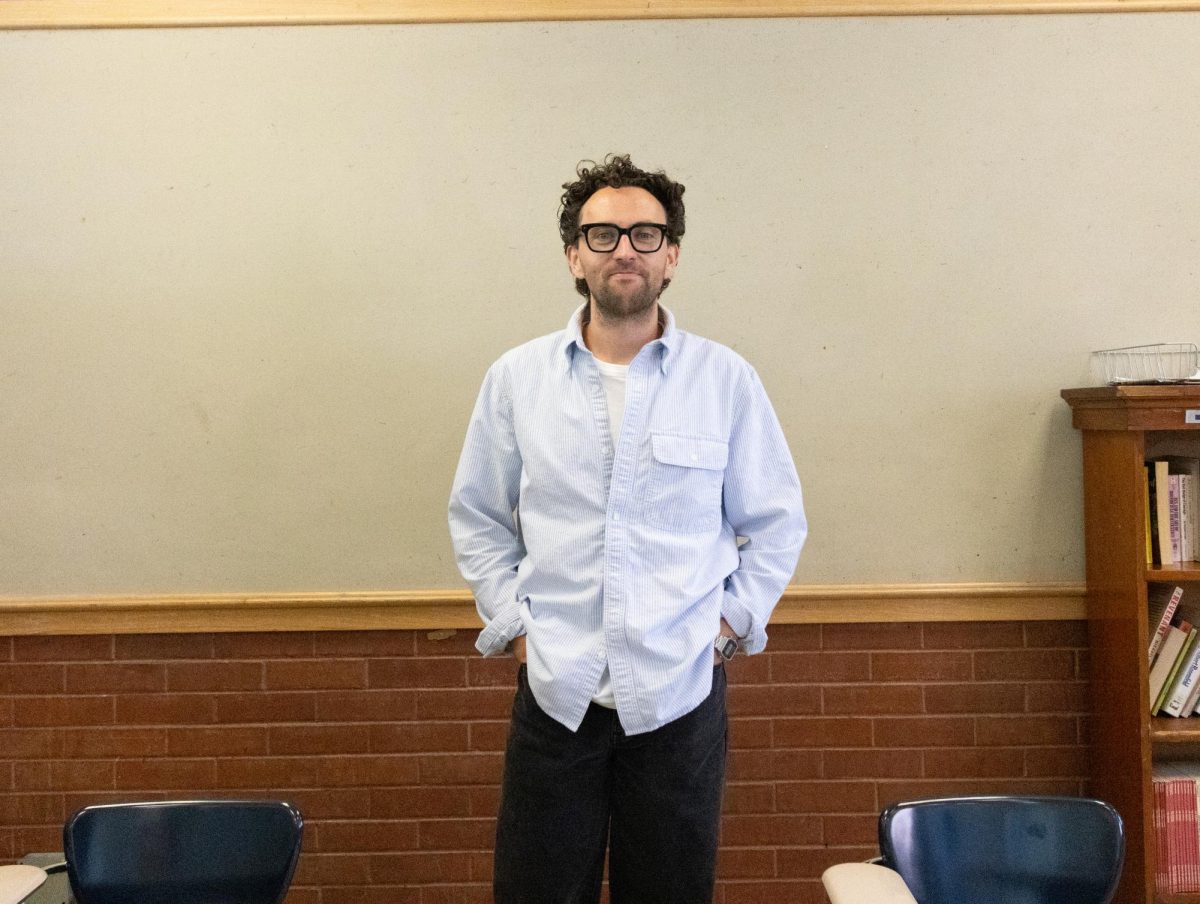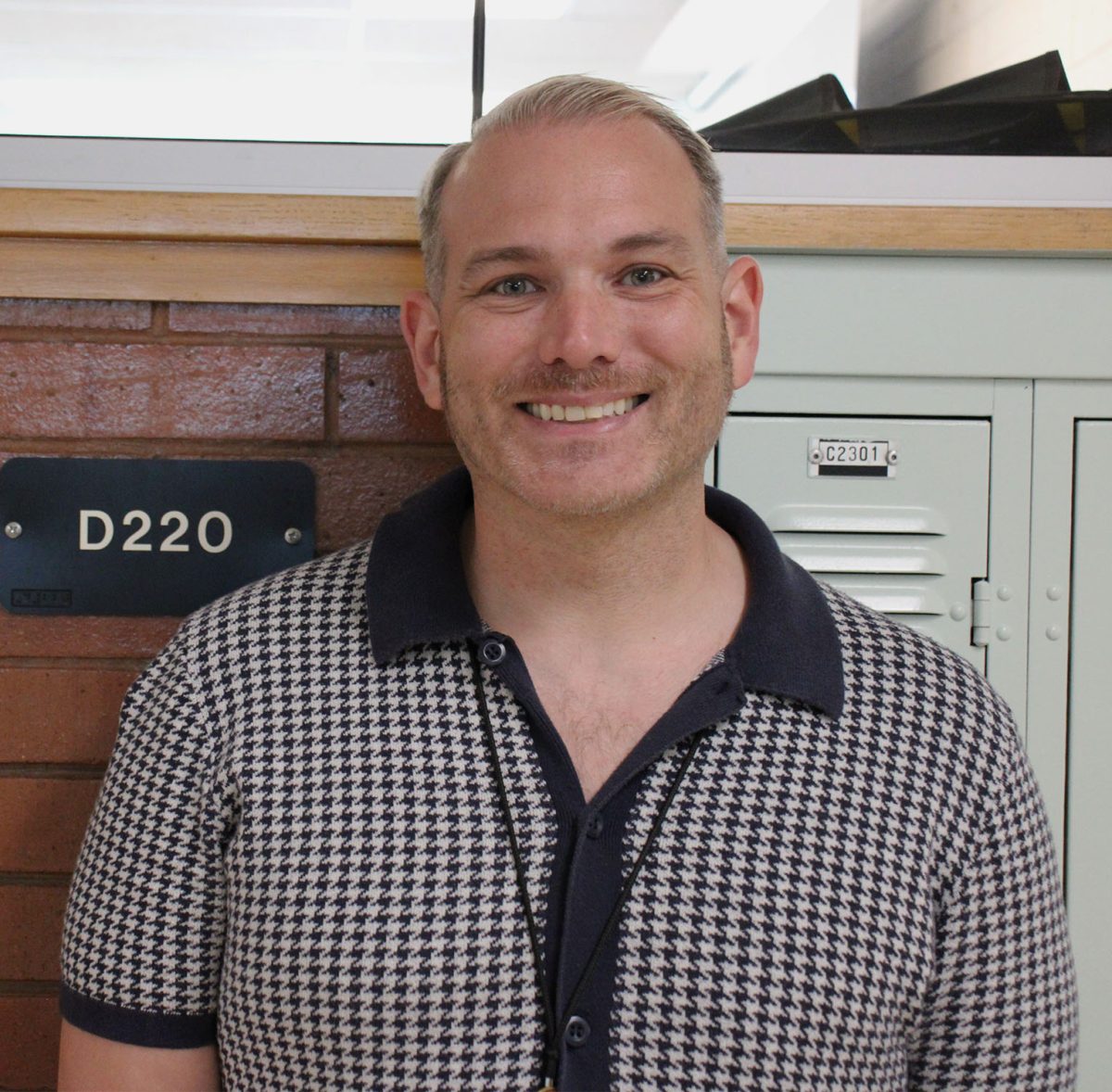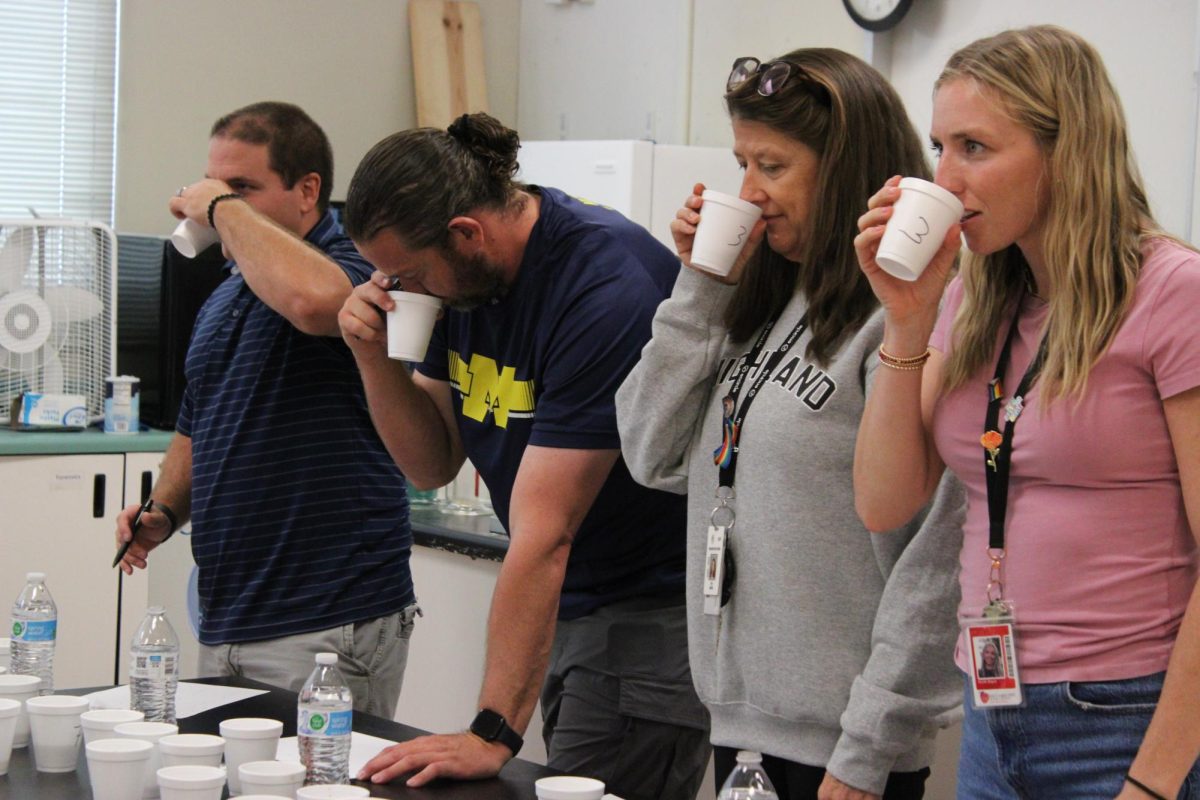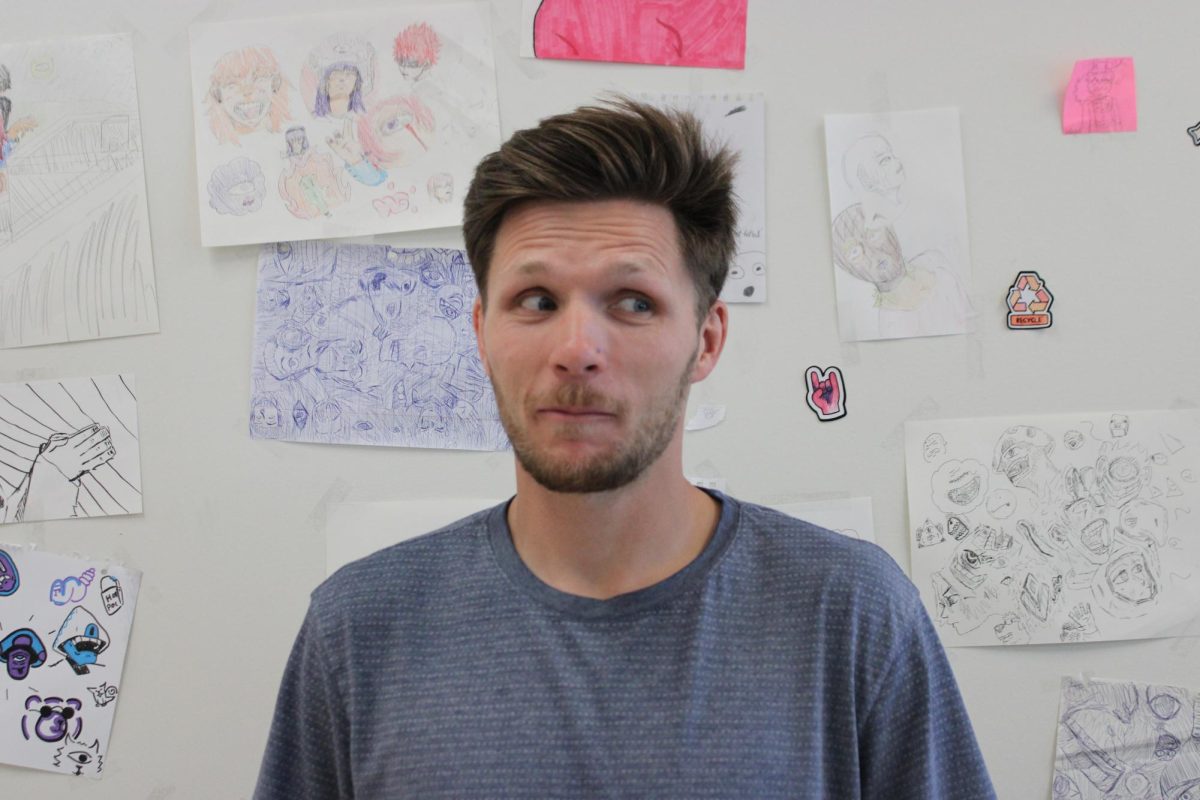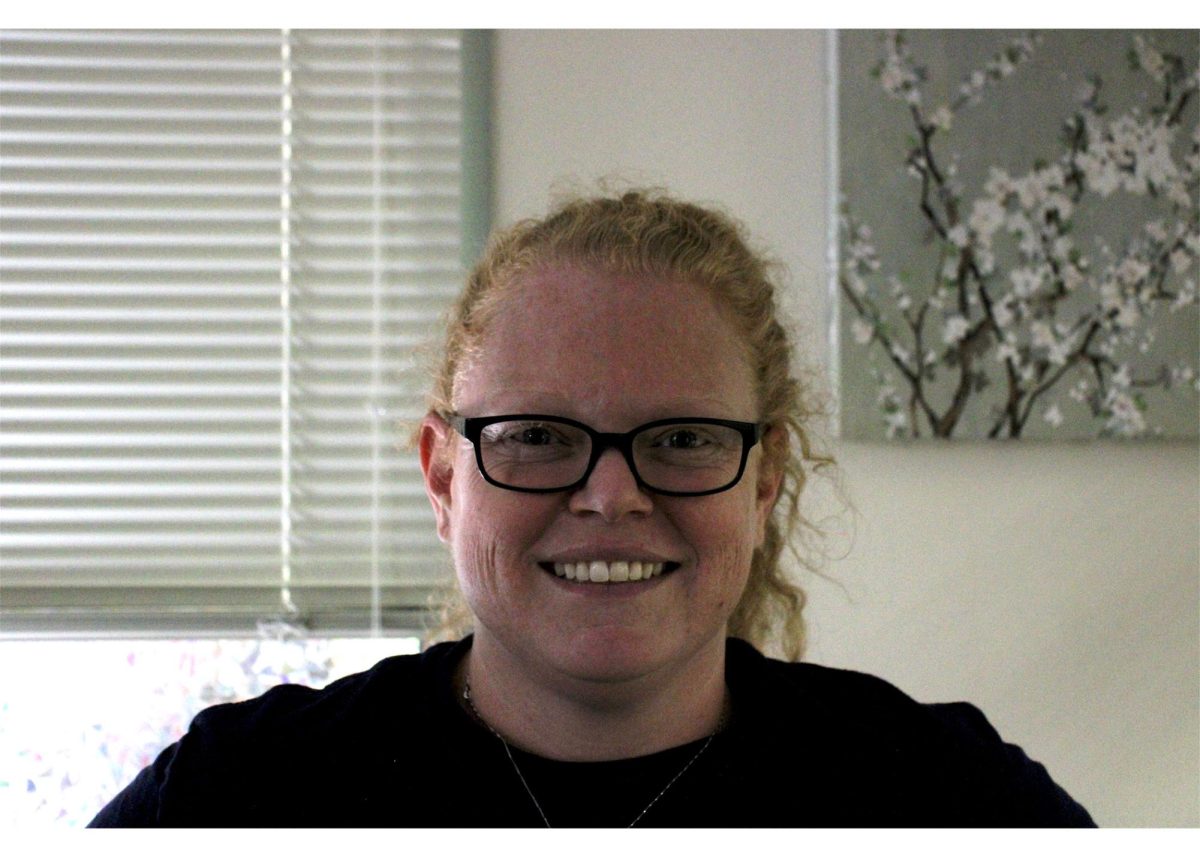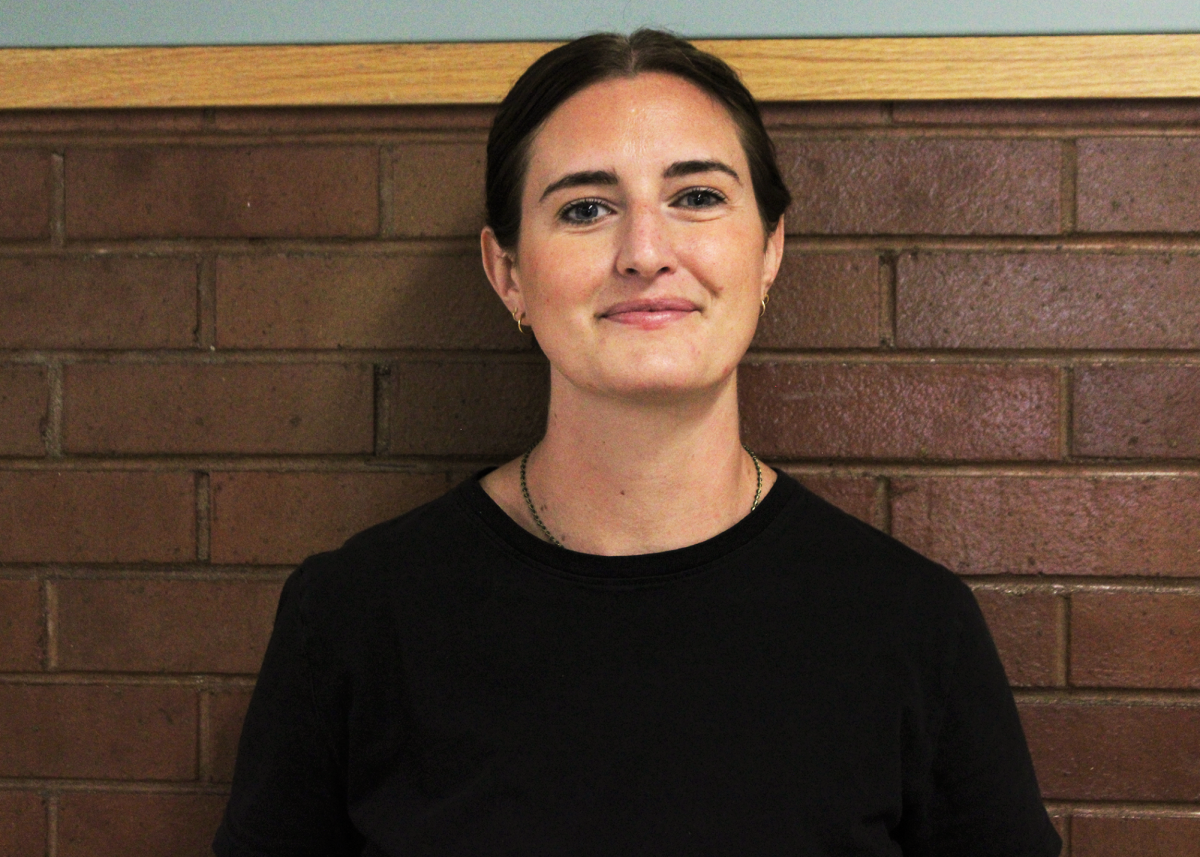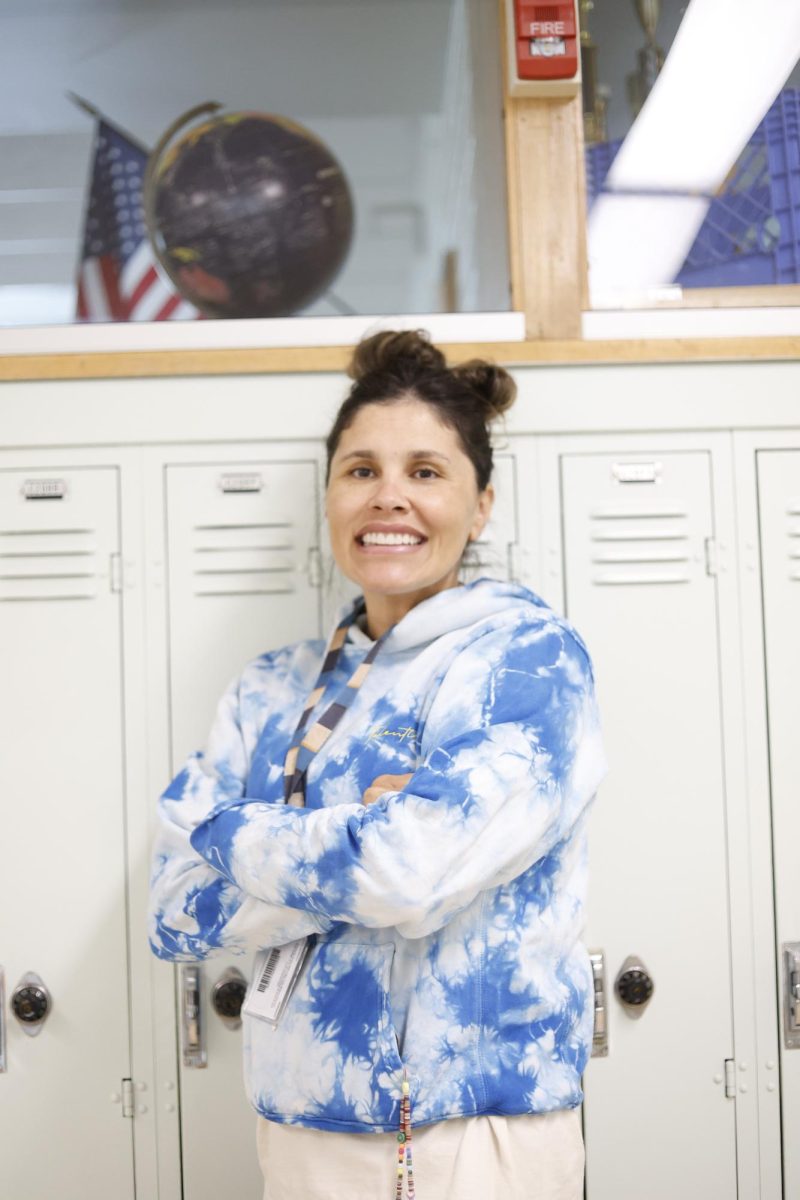Highland psychology teacher Ted Sierer knew that going bald was inevitable. As soon as he heard his diagnosis of cancer, one of the realizations he immediately had was that his hair would soon be gone. Instead of mourning the loss of his hair, he decided to take control of the situation.
Determined to put a positive spin on the situation, he and his family dyed his head blue, shaved it into the shape of a Y, and took pictures. A lifelong BYU fan, Sierer used this moment to add some levity to what could have been a somber moment.
“I think I’m good looking enough that I can rock any look,” Sierer said. “I’m just going to rock the bald.”
Not only is he rocking the bald look, he has rocked his treatment. After his first few rounds of chemo, Sierer went in for a new scan in early February and was given great news.
“Last week, I had my midpoint PET scan [to test for cancer in my body], and this PET scan showed nothing [ . . . ] This cancer, if it’s going to come back, it’ll come back in those first two years. If it doesn’t come back, they’ll declare me cancer free.”
Sierer envisioned beating cancer right from the start. And although he was scared, it didn’t rob him of his positive approach: an approach he’s learned through many life experiences and extensive study of psychology.
But that doesn’t mean he didn’t take the initial diagnosis hard. Sierer never expected his doctor to say “cancer”, but he always had it sitting in the back of his mind as a slight possibility leading up to his diagnosis on Thanksgiving weekend. He had spent days having pain while eating and breathing, knowing something was wrong. But when those words came out of his doctor’s mouth, Sierer felt like he was trapped in a nightmare.
“[When] you hear that word cancer, you immediately think of all the negatives, so I had a moment of [thinking] ‘did he really just say that,’” Sierer said. “Any time you hear that C-word, it’s a punch in the face.”
First came confusion as Sierer wondered how this could happen to him.
For anyone who knows Sierer, once the head wrestling coach at Highland, they’ll be familiar with his obsession with wrestling, football, and BYU sports. He’s fixated with fitness and physicality, and he’s lived his life prioritizing his health and strength.
“My whole life I’ve been healthy,” Sierer said. “I’ve never even spent a night in the hospital, don’t take pills…my body has just handled everything [so far].”
After that first night of confusion, frustration, and panic, though, Sierer quickly transitioned from devastation to determination. Determination to beat cancer. Sierer put the panic and self-pity outside of the ring so he could beat cancer one-on-one.
“My mind clicked over to what needs to be done and what was the next step,” Sierer said.
His family developed a similar approach. Although it’s a hard diagnosis, they’re trying to be as positive as possible.
Sierer’s wife, Stacey, has watched her husband through this process and been amazed and inspired by his positivity throughout.
“He respects what cancer is and what it means, but he doesn’t fear it, and he’s showing that with his attitude,” Stacey said. “I’ve been super impressed.”
Stacey and their children have started to take each day one day at a time, being thankful for each one that passes.
“He keeps saying he has felt peace this whole time, and I’ve kind of seen that [ . . . ] He doesn’t back down from a fight. He is ready to fight, and he’s shown that with this as well,” Stacey said. “Ever since the very beginning, he’s been determined to fight and to put in everything he can, which has inspired all of us.”
As Highland’s psychology teacher, Sierer has studied the brain and how it controls the body for years. Cancer became Sierer’s moment to practice what he preaches. Keeping a positive mindset is one of Sierer’s biggest teaching points. When times get tough, it’s important to keep composure and work through the issue.
When he changed his hair, he was working in that positive mindset.
Sierer has also worked towards focusing on just the moment, rather than all the possibilities of the future and all the trials in the past.
“Where psychology has helped me most is, we talk a lot about worrying about the moment. You can’t worry about the past, because the past is gone. You can’t change it. And the future hasn’t happened yet. All we can control is right now,” Sierer said. “I’ve preached that and preached that with my classes, and it’s interesting because when they said cancer, I [realized] I can’t change the fact I have cancer. It’s part of me. It’s who I am. It’s in my history. But I can control how I react.”
His third and final technique he’s focused on implementing is visualizing: envisioning outcomes in his brain to help trigger those outcomes in his body.
“Everything we do, it starts with something in our brains. So, I spend a lot of time seeing myself ringing the bell [that comes after you beat cancer]. I see myself having hair again, and just doing normal things again,” Sierer said. “I’m a strong believer that when we see things in our heads, and we spend some time mentally imaging those things, it helps it to happen because our brain controls our body.”
In psychology, seeing is believing. To see results, there must be a belief they will come.
To help his body be even more convinced that it can beat cancer, Sierer’s created a sticker for the inside of his truck on the dashboard reading, “I will be a cancer survivor.” It’s just one step in getting Sierer closer to ringing that bell.
“Everyday I see that. So everyday I’m affirming myself that cancer will be beat,” Sierer said.
Highland itself has also played a big role in Sierer’s attitude. Students and faculty have reached out to him and shown their support in ways Sierer wasn’t expecting.
After his first chemo treatment, Sierer came back to a room decorated with balloons and his boards filled with positive remarks. Highland history teacher Jim Boyce brought him fresh grape juice from his garden to help him get the antioxidants Sierer needed. Students have brought him beanies to keep his head warm in the winter.
“I honestly feel like I have an army. An army of people that have supported me and sustained me and are doing everything to help,” Sierer said. “I was prepared [for cancer] personally, but I was also prepared socially because I had so many people [willing to help].”
For Sierer, he never realized the impact he’s had on those around him and how much students care about him.
“I’ve always kind of felt like I was someone that’s forgettable, not that people don’t see me, but I think I’m someone who blends in,” Sierer said. “But what’s happened, as people have found out about this, I’m seen a lot more than I thought and that I’ve played a role in people’s lives a lot more. And that’s very humbling, it kind of chokes me up a bit when I think about how many people have stood up and said ‘Coach Sierer, I’m here for you.’”
Highland teachers have come together to support Sierer through the motto “Sierer Strong”. Faculty has handed out wristbands and flyers with QR codes to donate money towards helping Sierer beat cancer for good.
“Hard things happen in life. We can’t control our life. We can only control our response. When life happens and it gives us hard times, instead of running away from it, stand up to it and handle [it] because there’s going to be growth that occurs in yourself when you fight that hard thing,” Sierer said. “I’m sure anyone will be as surprised as I was by how many people will stand up and help you fight through that hard thing.”
Sierer Strong
Ted Sierer Has a Positive Mindset as he Faces One of the Biggest Challenges of His Life
Lydia Hawes, Online Editor In-Chief
February 15, 2024
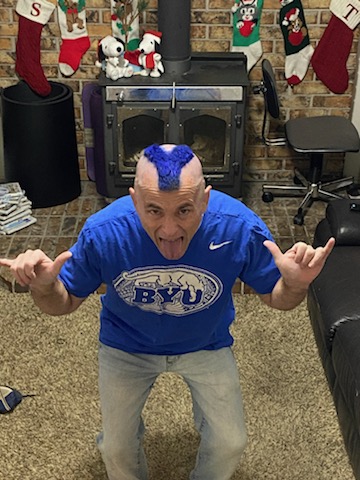
5
More to Discover





